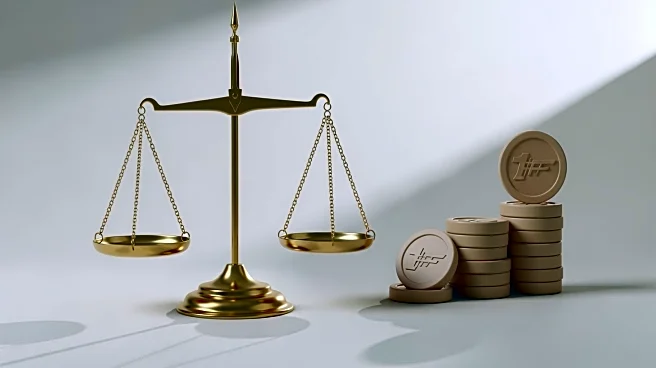What's Happening?
President Donald Trump has proposed distributing $2,000 'dividend' payments to Americans, funded by tariff revenue. This plan echoes the stimulus checks distributed during the COVID-19 pandemic. Economists
have labeled the proposal as 'deeply irresponsible,' warning that it could cost $600 billion, double the projected tariff revenue for 2025, and risk new inflation. The Supreme Court is currently assessing the legality of Trump's tariffs, which could undermine the financial foundation of the proposal. The plan would likely require congressional approval and could further strain the federal budget.
Why It's Important?
The proposal to use tariff revenue for direct payments to Americans is controversial, as it raises concerns about fiscal responsibility and inflation. Economists argue that the plan could exacerbate the national debt, which is already near $2 trillion in budget deficits. The potential inflationary impact of injecting cash into the economy is also a concern, given the lingering effects of previous stimulus measures. The Supreme Court's decision on the legality of the tariffs will be crucial in determining the feasibility of the proposal and its impact on U.S. economic policy.
What's Next?
The administration has not provided details on how the $2,000 payouts would be implemented, and congressional approval would be necessary for the plan to proceed. The Supreme Court's ruling on the tariffs will play a significant role in shaping the future of Trump's economic strategy. If the tariffs are invalidated, the government may face increased borrowing needs to refund payments. The proposal's impact on inflation and the national debt will be closely monitored by economists and policymakers.










